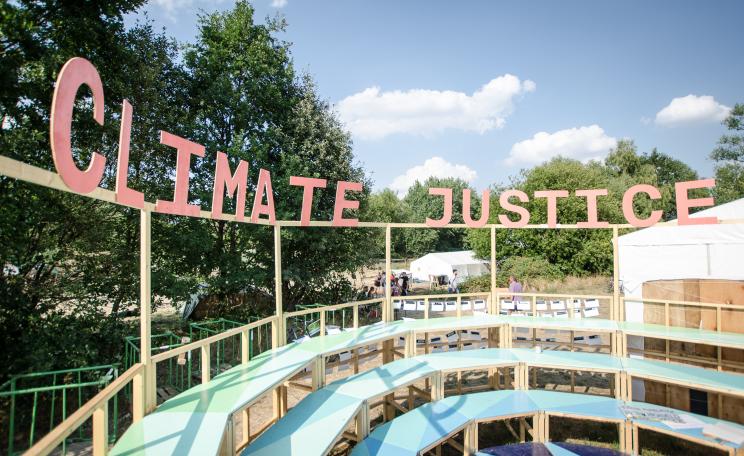x
Governments will meet in Katowice, Poland next month for a summit known as the COP24, three years on from the signing of the Paris Agreement.
The meeting comes at a time when the world is undergoing profound changes, with consequences for humans and the ecosystem felt now and for generations to come.
My country, Ireland, experienced a series of flash floods this August, with a typical month’s worth of rain falling in a matter of hours. These events will unfortunately become more frequent.
Extreme weather
Extreme weather is becoming the new normal. This year, 2018, is on track to become one of the hottest, with each of the three previous years beating new records. Temperatures topped 30 degrees in the Arctic Circle last summer and Finland had the hottest July on record.
In Greece, forest fires in the Attica region killed 99 people. Meanwhile, California is still counting the death toll from the most destructive fires in its history.
In vulnerable countries, where resources are few, climate change is intensifying existing problems.
Extreme weather patterns are a threat to food security worldwide and increase the risk of hunger. Unprecedented floods in South Asia last year claimed more than 1,200 lives and left almost two million children out of school. Efforts to eradicate poverty are being hampered by the avoidable effects of climate change.
The starkest of warnings came just last month from the UN Intergovernmental Panel on Climate Change (IPCC) which gave us a mere twelve years to limit climate change catastrophe. What is perhaps most remarkable in the report is that the upper limit of two degree warming as defined by the Paris Agreement is no longer a viable target.
Radical rethink
Governments should focus on a maximum of 1.5 degrees warming as this half-degree difference could significantly worsen the risk of floods, droughts and extreme heat. At 1.5 degrees, the proportion of the population exposed to water stress could be 50 percent lower than at 2 degrees, for example.
All this has implications for policy, as it will require a radical rethink of commitments to date and a total transformation of our societies and the global economy.
The upcoming COP24 will be an opportunity for governments to take stock of progress and to develop a framework to deliver on their commitments. But it will also be an opportunity to renew pledges and up our ambition towards the radical turnaround that is needed.
The UN Climate Change Executive Secretary Patricia Espinosa calls this upcoming COP24 “Paris 2.0” given its importance at this historical moment.
Trump’s withdrawal from the Paris Agreement was a huge setback for our collective efforts, opening the door for other countries to roll back on their commitments.
Growing alliance
Brazilian President-elect Jair Bolsonaro has made a mockery out of the country’s commitment to the Paris Agreement by promising to increase tree logging in the Amazon rainforest.
Bolsonaro, backed by big business, wants to replace protected forest with industry and beef farming. Trump and Bolsonaro represent a growing alliance around the world of far-right populists, business elites and climate denialists that want to tear apart multilateral cooperation and return the world to fascism.
What is at stake is not only growing militarism, inequality, and poverty, but the very future of our planet.
This is why we cannot rely on politicians alone to drive change. To stop climate change and limit its impact, collective action is needed and appropriate finance to support countries unable to pay for the costs of adaptation.
Last month I attended the Global Climate Action Summit in San Francisco and I was heartened by how some of the US states adhere to Paris targets despite persistent climate change denial by the Trump Administration.
Meeting commitments
The America’s Pledge movement has pushed cities, states, businesses and universities to reduce emissions. A new global alliance of 20 countries committed to phasing out coal for the production of energy has also emerged. Several countries have pledged to go carbon neutral by 2050.
This would not be possible without the ordinary women and men who have continued to take to the streets and organise around smart ideas, through cross-struggle alliances, pressuring those in power for an end to our addiction to fossil fuel.
The US withdrawal from the Paris Agreement presents a challenge - and indeed an opportunity - for the EU to fill the leadership vacuum. Europe is responsible for 10 percent of global emissions and 25 percent of all historic emissions.
This year, the EU has adopted legislation to reduce greenhouse gas emissions by at least 40 percent by 2030 from 1990 levels. The Commission claims that it is on track to meet its commitments in the Paris Agreement.
However, according to the Climate Action Tracker, actual EU commitments are consistent with warming above 2 degrees, therefore incompatible with Paris Agreement. This is just not acceptable.
Net-zero emissions
Already some countries are calling for the EU to be more ambitious. The European Parliament has called for a target of 55 percent below 1990 levels, which would make the EU consistent with the latest IPCC warnings to keep warming to 1.5 degrees.
At COP24, where I will be part of the European Parliament delegation, I will join civil society movements from Europe and around the world to demand true leadership from the EU.
This means a commitment in words and action for net-zero carbon emissions by 2050 as the only realistic solution to stop climate change and save our planet.
This Author
Lynn Boylan is an MEP for Sinn Féin, Ireland and part of the left-wing group in the European Parliament GUE/NGL. Boylan is representing the European Parliament in COP24, Poland.




